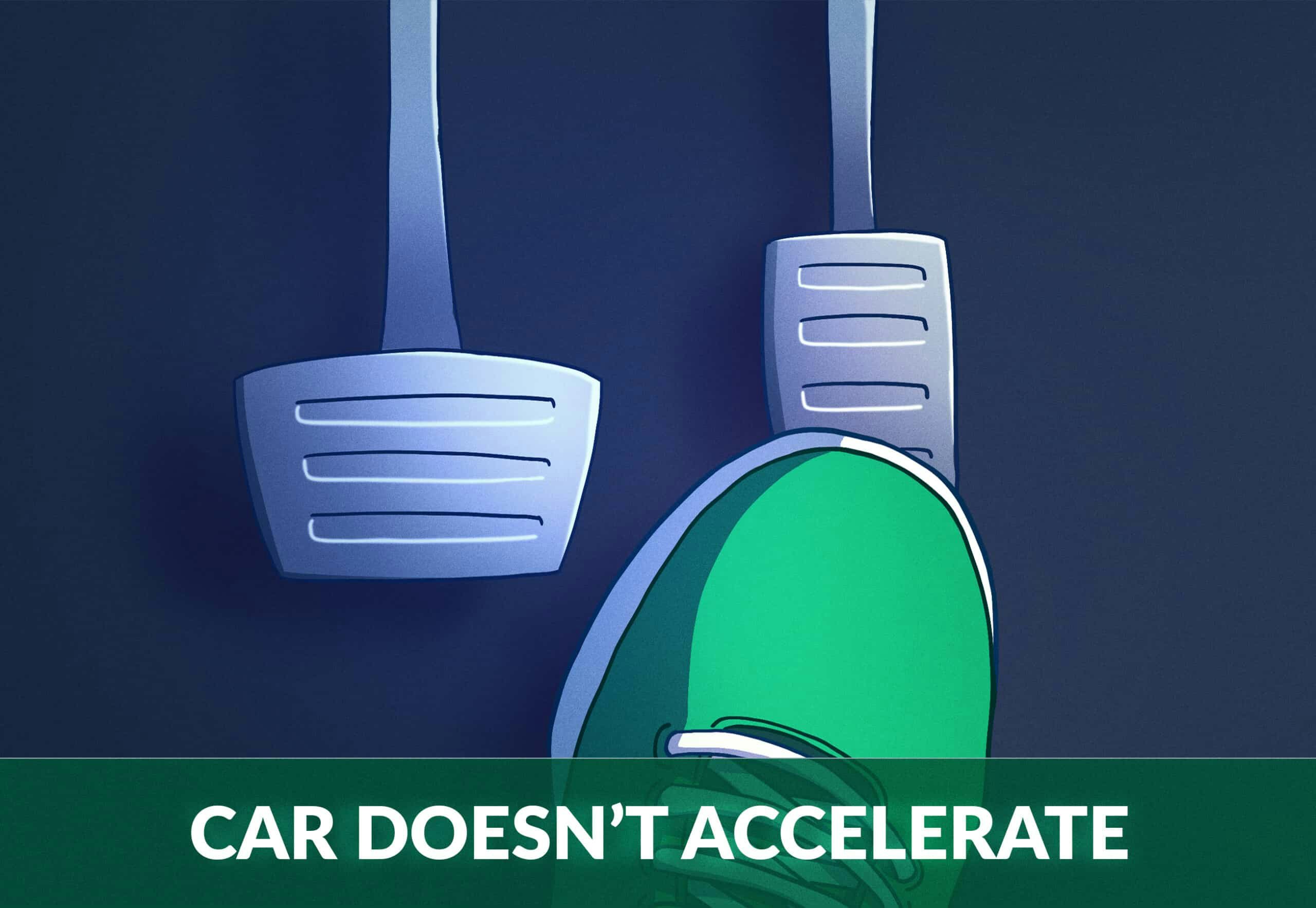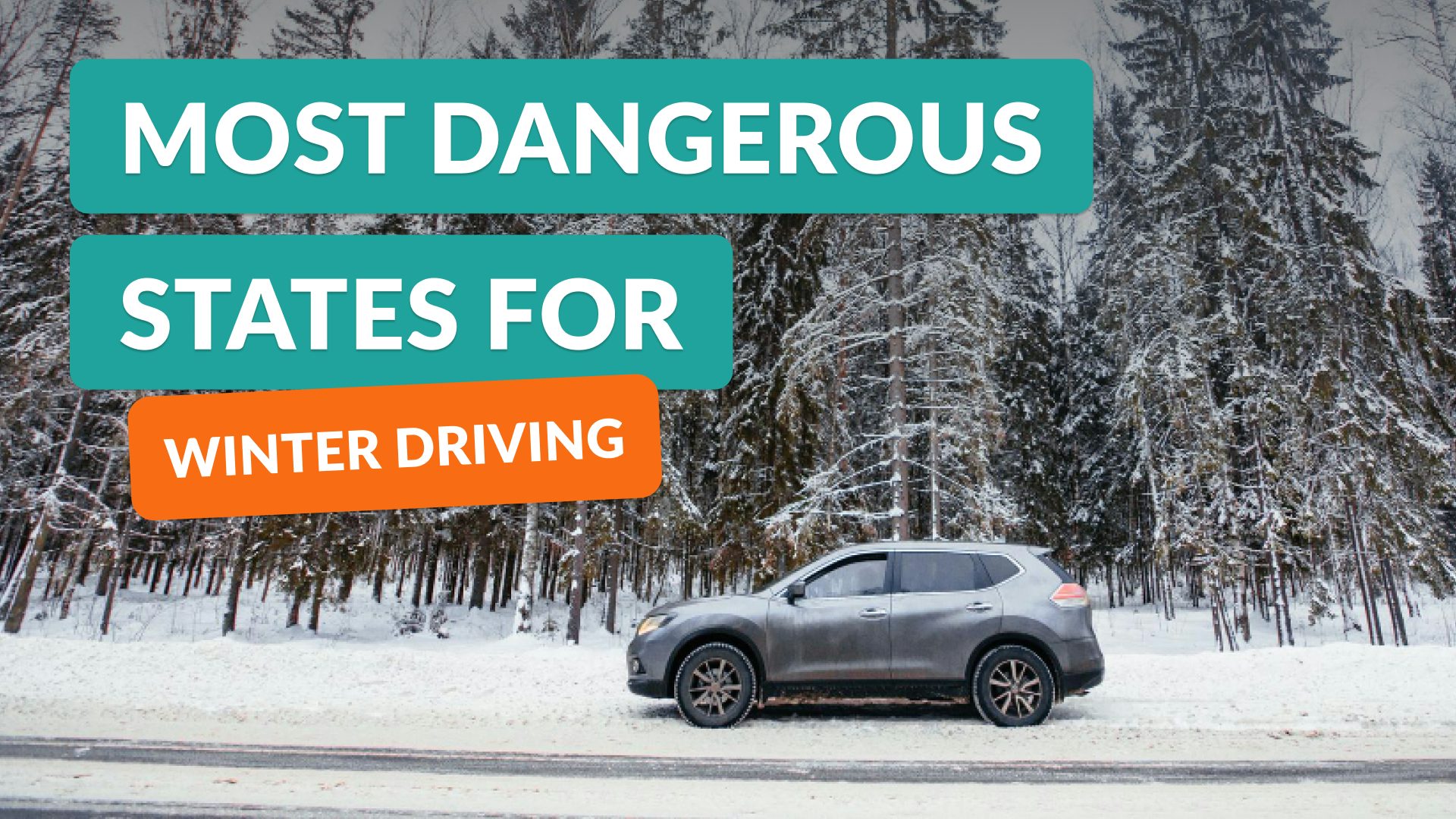
The 16 Most Common Reasons Your Car Isn’t Accelerating Properly & How to Fix It
Today we’ll go over:
- What to do if your car doesn’t accelerate
- Reasons your car might not be accelerating as it should
- Why poor acceleration is a road hazard
When you push the gas pedal, you expect the vehicle to accelerate based on the amount of pressure you put on it. When your vehicle hesitates or accelerates very slowly, it can mean a wide range of issues in your car. Worse, your vehicle is a road hazard until you get it fixed.
What Do I Do If My Car Suddenly Stops Accelerating on the Road?
When you can not accelerate, put on your hazard lights to alert drivers around you. Then find the next safe place to remove yourself from the road. This could be the shoulder of the road if it will not pose a hazard to you or other drivers, a public parking lot, or a turn-out off the road.You may need to call a tow or roadside assistance, especially if your vehicle is driving way under the minimum speed limit to be safe.
Reasons Your Car Won’t Accelerate
Here are a few of the top reasons your car might not be accelerating when you press the gas pedal.
#1 – The Quick Fixes
Sometimes it is a simple issue that you can identify and fix yourself. You might need to visit a mechanic to offset certain issues, but they do not usually indicate a larger engine problem.
- Altitude – Higher altitudes mean lower air density. If your car specifically starts acting up on sharp inclines and uphill driving, it could be the altitude. The reduced oxygen, nitrogen, and other components in the air can result in up to 20% reduced power! Keep your air filters and fuel injectors clean to reduce the strain on your vehicle.
- Something Under Gas Pedal – If you drop something by your feet, you should pull over and safely pull it away from your gas and brake pedals. If that free stress ball or rumpled junk mail works its way under your pedals, it will limit your control of acceleration and deceleration.
- Emergency Brake Engaged – A fully or partly engaged emergency brake presses the brake pads on your rear tires, causing the brake to drag. The issue could be solved by disengaging the emergency brake. You may still need to check with a mechanic to make sure the rear brake pads, bearings, and wheel drums were not warped by friction and overheating.
- Your Fuel – A near-empty fuel tank does not have the energy to accelerate your vehicle. Bad gas could be full of dirt and debris that is clogging up your lines and filters. Gas at the wrong octane for your vehicle can also cause major issues. You will need to refill the tank with the right fuel to eventually right it.
#2 – Dirty Parts
There are a lot of interconnected parts that keep your vehicle running. When one of them accumulates too much dirt or debris, it can affect the whole system. Unless you have knowledge of how to clean or replace these parts, it is best to let a professional do it for you.
- Dirty Spark Plugs – Spark plugs and ignition coils can cause misfiring issues. If a spark hits a cylinder at the wrong time, it will not do anything for your vehicle. Enough misfires can cause severe acceleration issues.
- Clogged or Dirty Air Filter – Air is an essential component of combustion for the fuel. If your air filter is clogged, air will not flow to the rest of the system as it should. Your car’s service manual will tell you how often it should be replaced to avoid this.
- Clogged or Dirty Fuel Filter – The fuel filter protects your engine from dirt, debris, and sludge that builds up in your gas tank. When it is clogged, fuel can not reach the rest of the car. You will need to replace the fuel filter to fix the issue.
- Clogged or Dirty Fuel Injector – A clogged or dirty fuel injector will cause poor fuel flow. You might be able to fix it by adding a fuel injector cleaning additive to your gas tank.
- Dirty Mass Air Flow Sensor (MAF) or Oxygen Sensor – These parts measure how much air is flowing into your engine. If it sends an incorrect reading, it can cause your engine to use too much or too little fuel.
#3 – Technical Difficulties
Your vehicle has a LOT of moving parts that need to work together for a smooth driving experience. These parts wear out with age and wear, and any misuse will accelerate their break down. For example- The fuel pump relies on your fuel levels to keep it cool. If you frequently drive around on a near-empty tank, the fuel pump will wear out faster.
Here are a few technical difficulties that can affect your ability to accelerate. Most of them will require a skilled mechanic to test for and fix.
- “Limp Mode” – If your car won’t accelerate over 25 or 40 mph, it could have engaged ‘limp mode.’ It is also known as a limp home mode, and it acts as a preservation feature. It is meant to get you home, to an auto mechanic, or safely off the road without destroying your engine. It is usually accompanied by a check engine light. Limp Mode can be triggered by a number of things, most of which you should have an experienced mechanic look into.
- A Failed Clutch – If the clutch can not properly engage transmission fluid with the engine, it will cause acceleration issues. If your vehicle speed changes without you accelerating or decelerating it, it could be low transmission fluid levels or a failing clutch.
- Problems with the ECU – The Electronic Control Unit, or ECU, is the brain of your car. It calculates all the things your sensors tell it, then it affects the fuel and energy output of the vehicle. If the sensors malfunction, it could read the wrong airflow, see pollution that isn’t there, and all forms of other errors. You will need to take the car in for testing to know for sure.
- Throttle Position (TPS) Sensor Malfunction – The TPS monitors the angle of your throttle and tells your ECU (the car’s brain) how the system needs to adjust. If it can not accurately read the throttle position, it will send misinformation to the ECU.
- Timing Belt – If your timing belt is worn out or damaged, it will not work properly. If you just had a new timing belt put in, it could have been misaligned or improperly installed.
- Failed Catalytic Converter – A faulty catalytic converter can cause too much back pressure on the engine. It can even catch fire! If you hear a rattling noise or smell sulfur, pull over and turn the engine off!
- Compression Issues – The vacuum lines throughout the engine help transport air and fuel to the various points it is needed. If the compressor or any of the vacuum lines are broken, then the system will not work properly. You will need a mechanic to identify the issue and replace the faulty parts.
Why is Driving too Slowly Dangerous?
While driving a reasonably slower speed is not usually an issue, there are minimum speeds that you should be driving to avoid impeding traffic. So you should not ignore the problem for long.
According to various law firms, driving too slowly is just as dangerous as speeding. Slow drivers force other drivers to adapt to them, and this can lead to increased rates of accidents. Especially if they have to lane-change or slow down and accelerate to accommodate your speed.
It is so dangerous, many states consider it a non-crime traffic violation. You could even face a traffic ticket and fines for doing it! According to the Insurance Information Institute, a traffic violation can also lead to increased insurance premiums.
Worse, it could mean there are serious issues with your vehicle, and they could cause an accident at any time!
Do I Need to Take My Car into a Mechanic When it Won’t Accelerate?
Most of us are not trained to identify and fix automotive issues. If you were not trained to deal with acceleration issues in a vehicle, it is better to take it to an expert. If you have a travel or roadside assistance card, most of them offer a discount if you use particular mechanics in your area.
If your car will not accelerate, there are a number of reasons for it. Most of them involve normal wear and tear. If you do have acceleration issues, do not risk an accident or fines from driving too slowly. See a mechanic as soon as you can!
Want more roadside safety advice? Refresh your knowledge on driving in different hazardous situations with our summarized DMV manual.

Avoid beginner mistakes with expert advice
Build road test confidence and reduce anxiety
Make at-home lessons a success with our parent guide
Recommended articles
Ace your DMV test, guaranteed
Want to Be the Top School in Your Area?
- Simple & automated admin
- More time for teaching
- #1 learning materials for students


